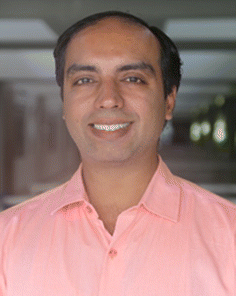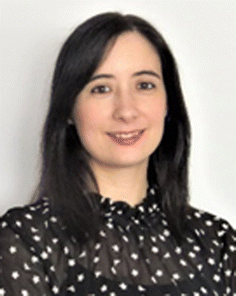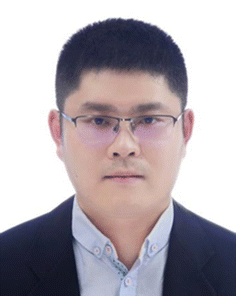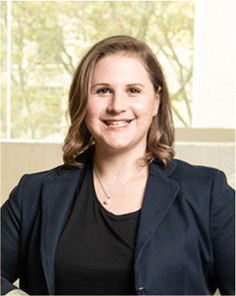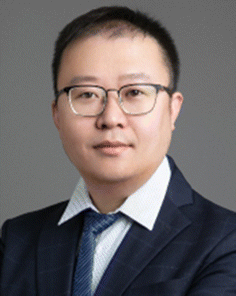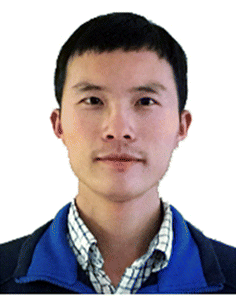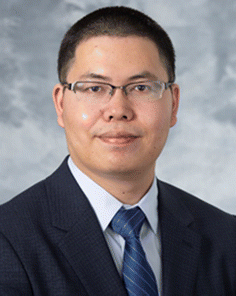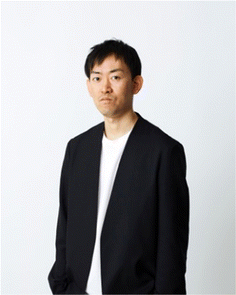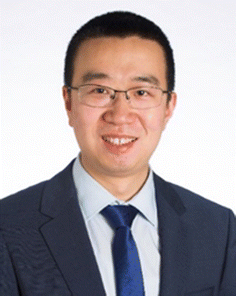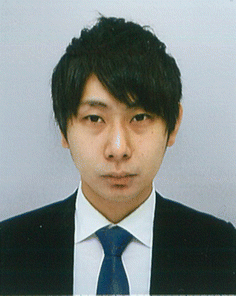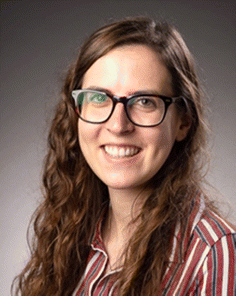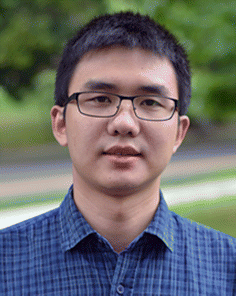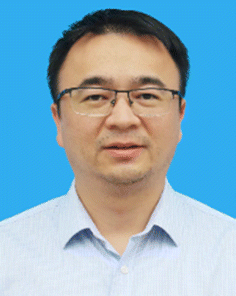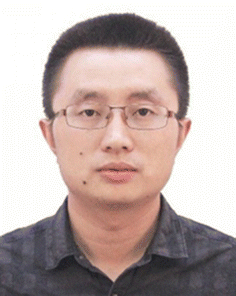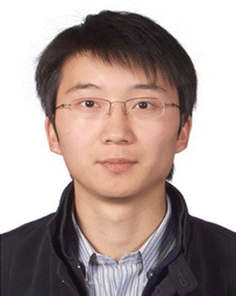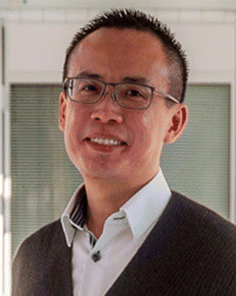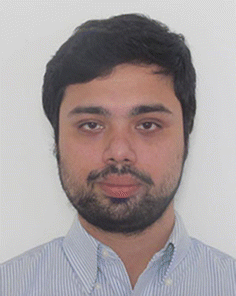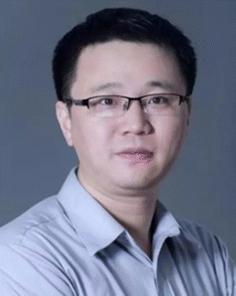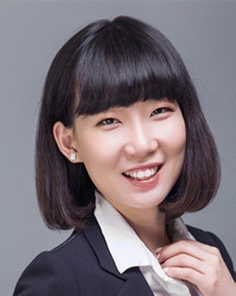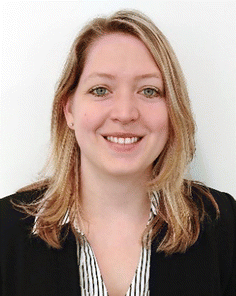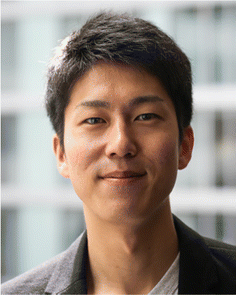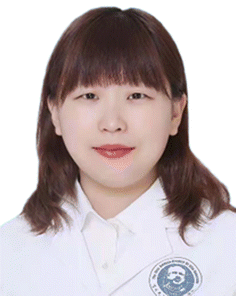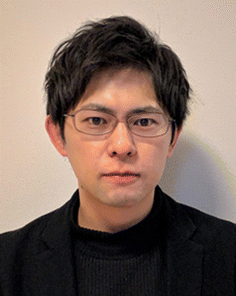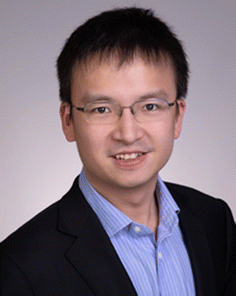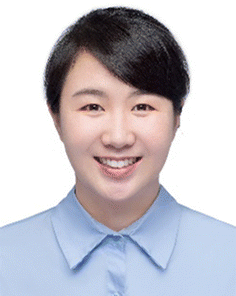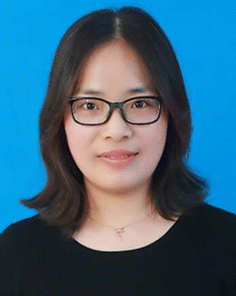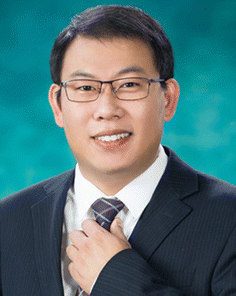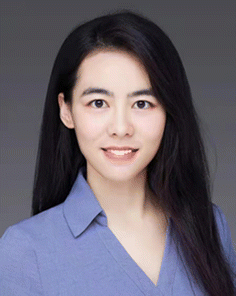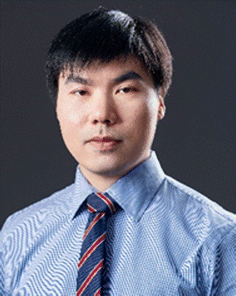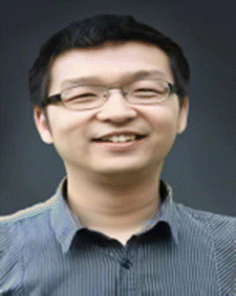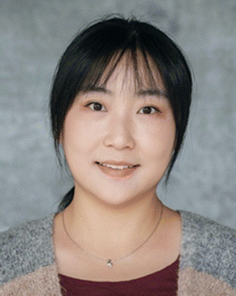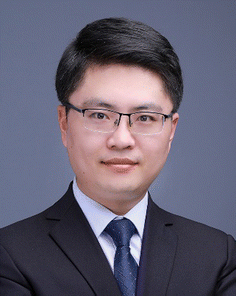DOI:
10.1039/D2TB90128E
(Profile)
J. Mater. Chem. B, 2022,
10, 7080-7088
Contributors to the Emerging Investigators 2022 issue
Abstract
Our 2022 Emerging Investigators themed issues gather some of the best research being conducted by scientists in the early stages of their independent career. Each contributor was recommended as carrying out work with the potential to influence future directions in materials chemistry. Congratulations to all of the researchers featured, we hope you enjoy reading this issue.
Dr Dhiraj Bhatia completed his PhD research with Yamuna Krishnan at NCBS-TIFR in Bangalore, India in DNA Nanotechnology. Post PhD he went to the Curie Institute in Paris to join the team of Ludger Johannes initially as Curie fellow and later as HFSP long-term fellow where he learnt the cellular and biological applications of DNA nanodevices. In 2018, he moved to India to start his own laboratory at the Indian Institute of Technology Gandhinagar where he is an Assistant Professor and Ramanujan fellow. His lab focusses on translational aspects of DNA nanotechnology to develop tools to program biological systems and having biomedical applications.
His contribution to the 2022 Journal of Materials Chemistry B Emerging Investigators collection can be read at DOI: https://doi.org/10.1039/D2TB00459C.
Dr Miryam Criado Gonzalez is a postdoctoral researcher at POLYMAT-University of the Basque Country (San Sebastián, Spain). She received her PhD in 2017 from the Institute of Polymer Science and Technology-CSIC (Madrid, Spain). Then, she spent a postdoctoral period in the Institute Charles Sadron-CNRS and Institute of Health and Medical Research-INSERM in Strasbourg (France). Her research interests include the development, assembly and applications of functional polymer and peptide-based materials in the biomedical field. The European Materials Research Society recognized her research on this field with a Young Scientist Award in 2021.
Her contribution to the 2022 Journal of Materials Chemistry B Emerging Investigators collection can be read at DOI: https://doi.org/10.1039/D2TB00615D.
Dr Jianxun Ding is a professor at Changchun Institute of Applied Chemistry (CIAC), Chinese Academy of Sciences (CAS). He obtained his PhD degree at CIAC, CAS, in 2013 under the supervision of Prof. Xuesi Chen. From 2017 to 2019, he worked with Prof. Omid C. Farokhzad and Prof. Jinjun Shi from Brigham and Women's Hospital, Harvard Medical School, as a postdoctoral research fellow. His research focuses on synthesizing bioactive biodegradable polymers, developing bioresponsive polymer platforms for controlled drug delivery, exploiting polymer-based adjuvants for immunotherapy, and preparing polymer scaffolds for regenerative medicine.
His contribution to the 2022 Journal of Materials Chemistry B Emerging Investigators collection can be read at DOI: https://doi.org/10.1039/D2TB00581F.
Dr Aaron Elbourne is a Research Fellow within the School of Science at RMIT University, Melbourne, Australia. He is currently the recipient of a Jack Brockhoff Foundation Early Career Medical Research Fellowship and an Australian Research Council Discovery Early Career Researcher Award (DECRA). He obtained his PhD in Chemistry in 2017 from The University of Newcastle, Australia under the supervision of Professor Erica J. Wanless. He began his postdoctoral fellowship in February of 2017. His research interests involve high-resolution atomic force microscopy, ion adsorption, solid–liquid interfaces, bio-interfaces, nanomaterials, liquid metals, and antimicrobial technologies.
His contribution to the 2022 Journal of Materials Chemistry B Emerging Investigators collection can be read at DOI: https://doi.org/10.1039/D1TB02575A.
Dr Ariel L. Furst is the Cook Career Development Professor of Chemical Engineering at MIT. She completed her PhD with Jacqueline K. Barton at the California Institute of Technology developing new electrochemical diagnostics for colorectal cancer. She was then an A. O. Beckman Postdoctoral Fellow with. Matthew Francis at UC Berkeley developing sensors to monitor environmental pollutants. Currently, her work centers on inventing technologies to improve human and environmental health by making access to resources more equitable. Her lab uses innovative chemical methods to develop transformative technologies to solve important problems related to healthcare and sustainability by harnessing the inherent capabilities of biological molecules and cells. She is a 2022 3M Nontenured Faculty Awardee, as and ARO Early Career Grantee. She was recently awarded the MIT UROP Outstanding Faculty Mentor Award for her work with undergraduate researchers. She is passionate about STEM outreach and increasing participation of underrepresented groups in engineering.
Her contribution to the 2022 Journal of Materials Chemistry B Emerging Investigators collection can be read at DOI: https://doi.org/10.1039/D2TB00717G.
Dr Liang Han is a professor at Soochow University. He obtained his PhD degree at Fudan University in 2012 under the supervision of Prof. Chen Jiang. From 2012 to 2015, he worked at Yale School of Medicine as a postdoctoral associate. Prof. Han's research focuses on overcoming the blood–brain barrier, and constructing brain-targeting drug delivery systems for therapy of brain diseases including breast cancer brain metastases and Alzheimer's disease. He has published over 40 peer-reviewed papers in journals, including
Advanced Materials,
Advanced Science,
Advanced Functional Materials,
ACS Nano,
Journal of Controlled Release,
etc.
His contribution to the 2022 Journal of Materials Chemistry B Emerging Investigators collection can be read at DOI: https://doi.org/10.1039/D2TB00683A.
Dr Liangcan He graduated from Tsinghua University and National Center for Nanoscience and Technology in 2014 under the guidance of Prof. Zhiyong Tang and Prof. Yadong Li. After that, he joined Prof. Jennifer N. Cha's group in the University of Colorado Boulder as a Research Associate, and later worked with Prof. Jennifer N. Cha and Prof. Christopher N. Bowman as a Senior Research Associate. In June 2018, he joined Dr Shawn Chen's lab at the National Institutes of Health as a Postdoc Research Scientist. In May 2021, he started his independent career as a professor at the Harbin Institute of Technology. His research interests focus on the design and synthesis of organic–inorganic nanomaterials for biomedical applications and nucleic acid nanotechnology.
His contribution to the 2022 Journal of Materials Chemistry B Emerging Investigators collection can be read at DOI: https://doi.org/10.1039/D2TB00935H.
Dr Quanyin Hu is an Assistant Professor in the School of Pharmacy, University of Wisconsin-Madison (UW-Madison). He received his PhD degree in Biomedical Engineering at the University of North Carolina at Chapel Hill (UNC-CH) and North Carolina State University. Before he joined UW-Madison, he was a postdoc associate at the Koch Institute for Integrative Cancer Research at Massachusetts Institute of Technology (MIT). His research group focuses on drug delivery, cell therapy, immunotherapy and personalized therapy.
His contribution to the 2022 Journal of Materials Chemistry B Emerging Investigators collection can be read at DOI: https://doi.org/10.1039/D2TB00583B.
Dr Jun Ishihara is an early-career researcher in the field of immunoengineering, with research foci in cancer immunotherapy, autoimmune diseases and regenerative medicine. Trained as a stem cell biologist, immunologist and bioengineer, he employs cell engineering and protein biology methodology to achieve cell manipulation. He has developed novel technologies, and currently focuses on achieving local cancer immunotherapy through targeting the tumor microenvironment.
Dr Ishihara spent the period from 2014/5 to 2016/3 in Switzerland as a post-doctoral fellow in the Hubbell laboratory at the Ecole Polytechnique Fédérale de Lausanne (EPFL). He transitioned from the EPFL to the University of Chicago in March 2016 also as a post-doctoral fellow in the Hubbell laboratory, when that laboratory relocated to the Pritzker School of Molecular Engineering. Dr Ishihara became a PI at the department of Bioengineering, Imperial College London in 2020. He is currently leading a lab of 9 people. Since the establishment of his laboratory, he has been awarded numerous research grants and awards. His goal is to make therapy more “comfortable” and long-term effective for patients.
His contribution to the 2022 Journal of Materials Chemistry B Emerging Investigators collection can be read at DOI: https://doi.org/10.1039/D2TB00592A.
Dr Yi Ju is currently a Vice-Chancellor's Postdoctoral Fellow at RMIT University. He received his PhD degree from The University of Melbourne in 2017 under the supervision of Prof. Frank Caruso. Following his PhD completion, he undertook a Research Fellow position in the same group exploring various low-fouling nanomaterials for controlled bio–nano interactions and served as a co-leader (2017–2021) of the Signature Project ‘Mediating Protein Interactions’ within the ARC Centre of Excellence in Convergent Bio–Nano Science and Technology. In 2021, he moved to RMIT University to take up a Vice-Chancellor's Postdoctoral Fellowship in Prof. Magdalena Plebanski's group where he investigates how nanomaterials interact with the immune system.
His contribution to the 2022 Journal of Materials Chemistry B Emerging Investigators collection can be read at DOI: https://doi.org/10.1039/D2TB00672C.
Dr Yukiya Kitayama is an assistant professor of the Graduate School of Engineering at Osaka Prefecture University. He received his PhD under the supervision of Prof. Dr Masayoshi Okubo from Kobe University. From April to October in 2012, he was a postdoctoral fellow in Prof. Dr Craig J. Hawker’s group at the University of California at Santa Barbara. From November 2012 to January in 2020, he held an academic position as an assistant professor in Prof. Dr Toshifumi Takeuchi’s group at Kobe University, Japan. In February 2020, he won a Leading Initiative for Excellent Young Researchers (LEADER) program from Japan Society for the Promotion of Science, and he moved to his current position at Osaka Prefecture University. His research interests are in polymer chemistry, colloid chemistry, molecular recognition, and drug delivery.
His contribution to the 2022 Journal of Materials Chemistry B Emerging Investigators collection can be read at DOI: https://doi.org/10.1039/D1TB02866A.
Dr Hannah S. Leese is assistant professor in the Department of Chemical Engineering at the University of Bath. She received her PhD in Chemical Engineering (2013) and held post-doctoral research associate positions at Imperial College London (2013–2017) and the University of Manchester (2017–2018). Hannah's team, the Materials for Health Lab, engineer advanced materials for minimally invasive point-of-care diagnostics for the early detection of disease – including molecularly imprinted polymers as sensor elements in devices, hydrogel-based microneedle technologies for drug delivery and biomarker uptake, devices for early detection of ovarian cancer and biomimetic protein-based fibres for wound dressing textiles.
Her contribution to the 2022 Journal of Materials Chemistry B Emerging Investigators collection can be read at DOI: https://doi.org/10.1039/D2TB00703G.
Dr Mingqiang Li is a professor of molecular medicine at Sun Yat-sen University. He received his BS degree from University of Science and Technology of China in 2009 and obtained his PhD degree under the supervision of Prof. Xuesi Chen from Changchun Institute of Applied Chemistry, Chinese Academy of Sciences, in 2015. From 2015 to 2018, he carried out postdoctoral research with Prof. Kam W. Leong at Columbia University. His current research is mainly focused on biomaterials and nanomedicines.
His contribution to the 2022 Journal of Materials Chemistry B Emerging Investigators collection can be read at DOI: https://doi.org/10.1039/D2TB00632D.
Dr Minhuan Lan received his PhD degree in organic chemistry in 2013 from the Technical Institute of Physics and Chemistry, Chinese Academy of Sciences (TIPC, CAS) under the supervision of Prof. Pengfei Wang. Then, he joined Prof. Wenjun Zhang's group as a postdoctoral researcher at the City University of Hong Kong (from 2013 to 2017). He joined Central South University (CSU) in 2017. Now he is a Professor at CSU, and his current research interests include the design and development of fluorescent materials and investigation of their applications in biosensing, bioimaging, and phototherapy.
His contribution to the 2022 Journal of Materials Chemistry B Emerging Investigators collection can be read at DOI: https://doi.org/10.1039/D2TB00984F.
Professor Xing Ma obtained his PhD degree in materials science and engineering from Nanyang Technological University in 2013. He worked as an Alexander von Humboldt research fellow at the Max Planck Institute for Intelligent Systems (MPI-IS) in Germany, from 2014 to 2016. He is now a professor at the Harbin Institute of Technology (Shenzhen), China. His research focuses on micro/nanomotors for biomedical applications and intelligent micro/nanodevices for biosensing.
His contribution to the 2022 Journal of Materials Chemistry B Emerging Investigators collection can be read at DOI: https://doi.org/10.1039/D2TB00556E.
Dr Hongli Mao obtained his PhD in Materials Science and Engineering from the University of Tsukuba, Japan in July 2014. Then he began to work at RIKEN as a JSPS (Japan Society for the Promotion of Science) Postdoctoral Fellow. In March 2017, he moved to Nanjing, China and has been a Professor of College of Materials Science and Engineering, Nanjing Tech University since then. His main research interests include polymer biomaterials, tissue engineering, regenerative medicine, and 3D bioprinting.
His contribution to the 2022 Journal of Materials Chemistry B Emerging Investigators collection can be read at DOI: https://doi.org/10.1039/D2TB00591C.
Dr Bernard Mostert is a materials researcher working on conductive biomaterials and bioelectronic devices. He received his PhD at the University of Queensland. He has had postdoctoral research associated positions at Lancaster University and the University of Queensland. Recently, he has finished a prestigious Marie Skłodowska-Curie fellowship at Swansea University. His specialty is understanding the charge transport mechanisms of biomaterials and devices as they are effected by water content. He has over a decade of experience in pioneering hydration control measurements in areas including electrical measurements, neutron and muon scattering measurements as well as magnetic resonance measurements.
His contribution to the 2022 Journal of Materials Chemistry B Emerging Investigators collection can be read at DOI: https://doi.org/10.1039/D2TB00593J.
Dr David Ng received his BSc Hons in Chemistry (first class) in 2009 from the National University of Singapore. In 2010, his PhD studies were funded by the Max Planck Institute for Polymer Research (MPIP) under the supervision of Prof. Tanja Weil in Ulm University. David graduated with
summa cum laude in 2014 and led a junior group until 2016. He then moved back to the MPIP and is focusing on constructing dynamic bioactive structures in living cells. In 2019, he was featured as an emerging key figure in ChemBioTalents. Since 2021, he has been appointed to concurrently lead the BioCore facility of the MPIP.
His contribution to the 2022 Journal of Materials Chemistry B Emerging Investigators collection can be read at DOI: https://doi.org/10.1039/D2TB00812B.
Dr Suchetan Pal obtained his BSc and MSc in Chemistry from Jadavpur University and the Indian Institute of Technology, Kanpur respectively. Then, he joined Arizona State University, for his doctoral studies. After completing the thesis work on “DNA directed self-assembly of plasmonic nanoparticles,” Dr Pal moved to a joint post-doctoral position at Columbia University and Brookhaven National Laboratory. He had completed another postdoctoral stint at the Memorial Sloan Kettering Cancer Center, before joining the Indian Institute of Technology, Bhilai as an assistant professor. His primary research focus includes biomolecular nanotechnology for drug delivery, biosensing and bioimaging.
His contribution to the 2022 Journal of Materials Chemistry B Emerging Investigators collection can be read at DOI: https://doi.org/10.1039/D2TB00603K.
Dr Yue Pan received his PhD degree in 2012 from Brandeis University under the supervision of Prof. Bing Xu. Before starting his independent research at Soochow University in 2013, he was a postdoctoral fellow at Harvard Medical School. He is currently a full professor in the medical research center at Sun Yat-sen Memorial Hospital, Sun Yat-sen University. His research interest focuses on the biomedical applications of functionalized nanomaterials. He was awarded with a Distinguished Young Scholars of Guangdong province and selected as one of the “Top 1% Highly Cited Corresponding Authors in China” and “Emerging Investigators for Journal of Materials Chemistry B” by the RSC.
His contribution to the 2022 Journal of Materials Chemistry B Emerging Investigators collection can be read at DOI: https://doi.org/10.1039/D1TB02524D.
Dr Ruirui Qiao is a Group leader and NHMRC Emerging Leadership Fellow at Australian Institute for Bioengineering and Nanotechnology (AIBN), University of Queensland. Dr Qiao received her BSc (2005) and MSc (2007) from Peking University and was a tenured associate professor (2016–2017) and assistant professor (2009–2015) at the Institute of Chemistry, Chinese Academy of Sciences (CAS), where she received her PhD in 2014. In 2017, she joined the ARC Centre of Bio-Nano Science (CBNS), Monash University as a project co-leader. Currently, she leads a nanobiotechnology research group at AIBN, focusing on the development of functional nanohybrids toward biomedical and clinical translations.
Her contribution to the 2022 Journal of Materials Chemistry B Emerging Investigators collection can be read at DOI: https://doi.org/10.1039/D2TB00931E.
Dr Jessica Rouge received her PhD in Chemistry from Prof. Bruce E. Eaton's laboratory at the University of Colorado in 2012. It was during her time in Colorado that Jessica used
in vitro selection platforms to explore RNA's potential to mediate the formation of inorganic nanoscale structures, much like an organism can guide the formation of bones and shells using biological templates. Jessica completed a postdoc position in the laboratory of Prof. Chad A. Mirkin at Northwestern University in 2015, and later that year joined the faculty of the University of Connecticut, where she is currently an Associate Professor in the Department of Chemistry. There she combines the chemical diversity of nucleic acids with the synthesis of nanoscale materials for a wide variety of applications in biological systems.
Her contribution to the 2022 Journal of Materials Chemistry B Emerging Investigators collection can be read at DOI: https://doi.org/10.1039/D1TB02722K.
Dr Koichi Sasaki completed his PhD in 2020 (Supervisor: Prof. Yoshiki Katayama, Kyushu University). He conducted 9 months of research at the University of Chicago (Supervisor: Prof. Jeffrey A Hubbell) as a visiting student during his PhD. He received Chemical Abstract Service (CAS) Future Leaders Award from American Chemical Society in 2019. After a year of postdoctoral research at Osaka Prefecture University (Supervisors: Prof. Atsushi Harada and Prof. Eiji Yuba), he is currently working on development of next-generation adoptive cell therapy based on expertise in molecular engineering and drug delivery systems as a member of Ishihara laboratory at Imperial College London.
His contribution to the 2022 Journal of Materials Chemistry B Emerging Investigators collection can be read at DOI: https://doi.org/10.1039/D2TB00592A.
Dr Ying Tang received her PhD degree in internal medicine from Jilin University in 2017. She is working as an attending physician at the First Hospital of Jilin University. Her research interests are focused on the synthesis and bioapplication of multifunctional nanomaterials.
Her contribution to the 2022 Journal of Materials Chemistry B Emerging Investigators collection can be read at DOI: https://doi.org/10.1039/D1TB02689E.
Dr Shunsuke Tomita is currently a senior researcher in the Health and Medical Research Institute at the National Institute of Advanced Industrial Science and Technology (AIST). He received his PhD in 2011 from the University of Tsukuba under the supervision of Prof. Kentaro Shiraki. Between 2012–2014, he worked as a Research Fellow of the Japan Society for the Promotion of Science (JSPS) with Prof. Keitaro Yoshimoto at the University of Tokyo. In 2014, he moved to the Biomedical Research Institute at the AIST. His current research interests focus on polymer design for biomimetic sensing and understanding biological liquid–liquid phase separation involving biomacromolecules.
His contribution to the 2022 Journal of Materials Chemistry B Emerging Investigators collection can be read at DOI: https://doi.org/10.1039/D2TB00606E.
Dr Huiliang (Evan) Wang is an assistant professor at University of Texas at Austin (UT Austin). Prior to joining UT Austin, he was a postdoc with Karl Deisseroth at Stanford Bioengineering, developing nanomaterial-based technologies for targeted neural modulation. Before then, he gained his PhD degree from Stanford Materials Science and Engineering and worked on nanomaterials and polymers for flexible/wearable electronics with Zhenan Bao. He has received several awards and fellowships including the Materials Research Society (MRS) Gold Graduate Student Award, NIH F32 NRSA Postdoctoral Fellowship, NIH K01 Mentored Research Scientist Development Award and MIT Technology Review 35 under 35 (China).
His contribution to the 2022 Journal of Materials Chemistry B Emerging Investigators collection can be read at DOI: https://doi.org/10.1039/D2TB00618A.
Dr Jiang Wu is a full Professor in the School of Pharmaceutical Sciences at Wenzhou Medical University. She received her bachelor and PhD degrees from Zhejiang University in 2009 and 2014, respectively. After graduation, she joined Wenzhou Medical University and worked in Professor Xiaokun Li's group from then on. Her research interests mainly focus on the design and development of advanced biomaterials for growth factor delivery, wound healing, and regenerative medicine.
Her contribution to the 2022 Journal of Materials Chemistry B Emerging Investigators collection can be read at DOI: https://doi.org/10.1039/D2TB00614F.
Dr Li Wu received her PhD degree in inorganic chemistry from Changchun Institute of Applied Chemistry Chinese Academy of Sciences in 2015 under the direction of Professor Xiaogang Qu. She then joined Professor Daniel T. Chiu's research group at University of Washington (Seattle) as a postdoctoral researcher in 2015. She has been a full professor of the School of Public Health, Nantong University since 2019. Her current research interests focus on the development of new technology for biological and medical testing, the accurate diagnosis and treatment of tumors using functional materials,
etc.
Her contribution to the 2022 Journal of Materials Chemistry B Emerging Investigators collection can be read at DOI: https://doi.org/10.1039/D2TB00937D.
Dr Zhiguang Wu is a Professor at the State Key Laboratory of Robotics and System, Harbin Institute of Technology. He earned his PhD in chemical engineering and technology from the Harbin Institute of Technology in 2015, then he participated in Prof. Peer Fischer’s group at the Max Plank Institute for Intelligence Systems under an Alexander von Humboldt Foundation research fellowship. Subsequently he continued his postdoctoral fellowship at the California Institute of Technology. His research interests are focused on the development of the next-generation of swimming micro/nanorobots for precision medicine. He is a recipient of an MIT Technology Review 35 Innovators under 35 in China listing.
His contribution to the 2022 Journal of Materials Chemistry B Emerging Investigators collection can be read at DOI: https://doi.org/10.1039/D2TB00938B.
Professor Jiajia Xue is working in the College of Materials Science and Engineering at Beijing University of Chemical Technology (BUCT). Her primary research interests include functional biomaterials for tissue regeneration, especially for nerve repair, bone regeneration, and wound healing. Professor Xue received her PhD degree in Materials Science and Engineering from BUCT (with Professor Liqun Zhang) in 2015. Afterwards, she completed her postdoctoral training at the Georgia Institute of Technology and Emory University (with Professor Younan Xia) in 2015–2019. Professor Xue has published over 60 peer-reviewed papers in scientific journals and co-authored 5 book chapters. She is now serving as the vice-executive secretary of “SICOT China Department Computer and Enabling Technology Professional Committee” and the Youth Editorial Committee of
Advanced Fiber Materials,
Exploration,
Materials Today Bio, and
Burns &Trauma.
Her contribution to the 2022 Journal of Materials Chemistry B Emerging Investigators collection can be read at DOI: https://doi.org/10.1039/D2TB00609J.
Dr Lesan Yan is a full professor at the State Key Laboratory of Advanced Technology for Materials Synthesis and Processing, Wuhan University of Technology. He received his PhD in Polymer Chemistry and Physics from Changchun Institute of Applied Chemistry, Chinese Academy of Sciences, in 2013. Then, he worked as a postdoctoral fellow at Johns Hopkins University and the University of Pennsylvania from 2013 to 2019. His research interests are focused on biodegradable polymer biomaterials, mainly based on polyurethane, polypeptides, and polycarbonates, and their applications in nanomedicine and molecular imaging.
His contribution to the 2022 Journal of Materials Chemistry B Emerging Investigators collection can be read at DOI: https://doi.org/10.1039/D2TB00608A.
Dr Fang Yang is currently acting as an Associate Professor at Ningbo Institute of Materials Technology and Engineering, Chinese Academy of Sciences. He mainly leverages his expertise to design, characterize and bioeffect detection of nanomaterial-based systems as well as to develop multi-functional nano biomaterials as advanced diagnostic and therapeutic agents. His bachelor’s degree in Physics, master’s degree in Physics and PhD in Chemistry titles were awarded by the Phillips University of Marburg in Germany. He has authored more than 40 original publications. He has 5 granted patents including 1 US patent. He was selected by the Youth Innovation Promotion Association of Chinese Academy of Sciences.
His contribution to the 2022 Journal of Materials Chemistry B Emerging Investigators collection can be read at DOI: https://doi.org/10.1039/D2TB00428C.
Dr Fei Zhang received her bachelor's degree in Chemistry from Peking University in 2010 and her PhD in Chemistry and Biochemistry from Arizona State University in 2015. After graduation from ASU, Dr Zhang joined the faculty of the Biodesign Institute as assistant research scientist in the Center for Molecular Design and Biomimetics. There, she was promoted to the rank of assistant research professor in 2016. Dr Zhang's work at the Biodesign Institute was recognized with the Robert Dirks Molecular Programming Prize awarded by the International Society for Nanoscale Science, Computation and Engineering. Dr Zhang joined Rutgers in 2019. In 2021, she received the NSF Faculty Early Career Development (CAREER) award. Dr Zhang's research efforts are focused on designing nucleic-acid nanostructures with increasing complexity and precision, constructing dynamic DNA devices with programmable behaviors, and ultimately rebuilding synthetic biochemical molecular systems that approach the sophistication exhibited by nature itself.
Her contribution to the 2022 Journal of Materials Chemistry B Emerging Investigators collection can be read at DOI: https://doi.org/10.1039/D2TB00605G.
Dr Kun Zhang, PhD, Professor, Deputy director, Central Laboratory, Shanghai Tenth People's Hospital, Tongji University School of Medicine has been honoured by the National Natural Science Fund for Outstanding Young Scholars, Shanghai Top-notch Youth Talent Support Program and Chair Professor for Bayu Scholar Program, Shanghai Rising-Star Program,
etc. He has published over 60 papers as the first (co-first) and corresponding authors. His research fields include nanomedicine, ultrasound theranostics, immunotherapy, gene editing, tumor microenvironment modulation & monitoring, epigenetic modulation, regenerative medicine, and other interdisciplinarity research.
His contribution to the 2022 Journal of Materials Chemistry B Emerging Investigators collection can be read at DOI: https://doi.org/10.1039/D2TB00600F.
|
| This journal is © The Royal Society of Chemistry 2022 |

